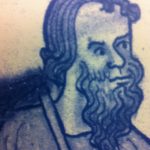 In a recent post I put the word ‘democratic’ in this title between inverted commas, and a student has asked me why. Did I doubt, I was asked, that the GDR was democratic? Well yes I did. East Germany emerged in 1949 from the Soviet-occupied zone of recently defeated Germany. As an eastern European country it ceased to exist in October, 1990.
In a recent post I put the word ‘democratic’ in this title between inverted commas, and a student has asked me why. Did I doubt, I was asked, that the GDR was democratic? Well yes I did. East Germany emerged in 1949 from the Soviet-occupied zone of recently defeated Germany. As an eastern European country it ceased to exist in October, 1990.
The Potsdam Conference had, among countless other disgraces, invented a country divided into four zones, each occupied by one of the victorious Allies. They were American, British, French and Russian, though why the French should have got a zone to themselves when they had hardly fired a shot in anger at the commencement of the Second World War is questionable. Three-fifths of France fell to the Nazis in 1940 but the French were permitted to govern the rest of the country as a ‘neutral’ state with its own government at Vichy. As Vichy collaborated with the Germans from day one the term ‘neutral’ is dubious. The Third Reich had by that time invaded the Polish Corridor, Czechoslovakia, Denmark, parts of Norway, Belgium and the Netherlands.
East Germany’s frontier with Poland was confirmed by the Treaty of Zgorzelec in 1950. Her capital was officially East Berlin but the status of West Berlin – an enclave of the Federal Republic of Germany was a complication: Berlin was a good 110/150 kilometres inside East Germany, but was recognised by the Soviets and its existence guaranteed by the Four-Power Agreement.
Under its new and rather ambitious name the German Democratic Republic had to pay reparations to the Soviet Union, mostly for damage done by the Red Army as it advanced through north eastern Germany after the Normandy Invasion. There was dissent and disorder, and more than once the Soviet Army had to put down rebellions using their customary gentle methods.
In 1954 the name GDR was officially recognised and the following year it became a founder member of the Warsaw Pact, in common with other Communist satellites. In 1956 it formed the National People’s Army which was instrumental in sealing borders in August of 1961, including the construction of the Berlin Wall (q.v.).
Walter Ulbricht (pictured above / biografiayvidas.com) was General-Secretary of the Socialist Unity Party and Chairman of the Council of State. If he ruled democratically nobody bothered to tell him so. Industry ground to a halt and many people went hungry or simply died of boredom.
East Germany had to wait for the leadership of Erich Honeker in 1976 for the establishment of a stronger industrial base than most members of COMECON (an economic organisation of Soviet-bloc countries: Bulgaria, Cuba, Czechoslovakia, Hungary, Mongolian People’s Republic, Poland, Romania, Vietnam etc. Albania got expelled in 1961. Yugoslavia had associate status). A top-heavy bureaucracy, and centrally controlled disciplines rapidly atrophied, and corruption was widespread. There was an utterly ruthless secret police force – the Stasi. Citizens simply disappeared. In 1989 a series of hugely violent demonstrations daringly took place, and a new political group, New Forum, demanded real democratic reforms.
The first free elections since 1933 (when Hitler became Chancellor) were held in March, 1990 after the sinister Berlin Wall had been dismantled. The Christian Democratic Union, which actually was democratic, emerged the winner. The GDR ceased to exist on 3 October 1990. There was now a united country called the Federal Republic of Germany. Criminal proceedings were started against most of those suspected of having abused human rights in the GDR regime. Few were actually punished, small-time petty officials mostly. The most serious accusations were levelled at Honeker, but the case was dropped because of his bad health. His successor, Herr Egon Krenz and several officials were found guilty of various crimes, mainly ordering the death by shooting of persons trying to get over the Wall (q.v.).










Leave A Comment